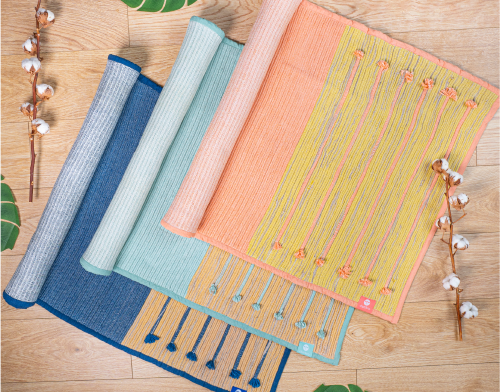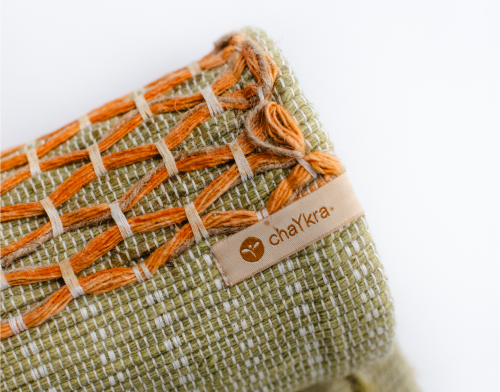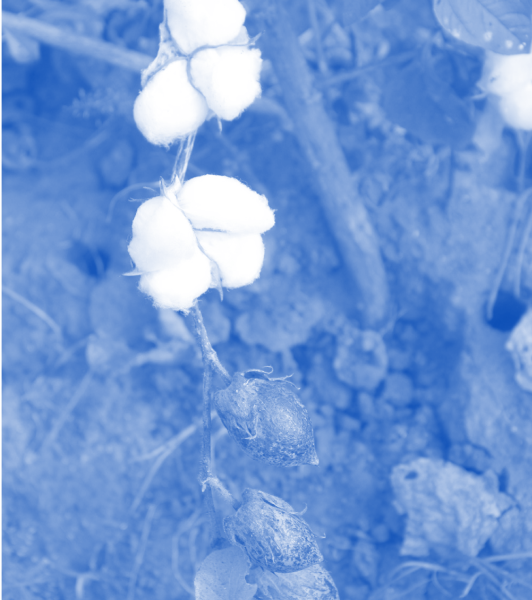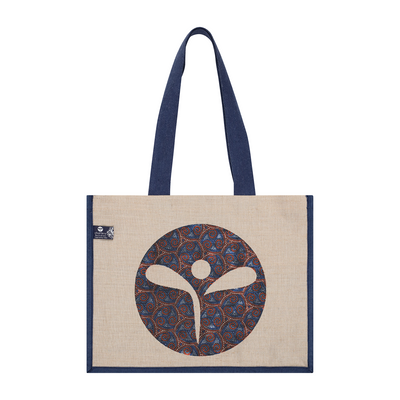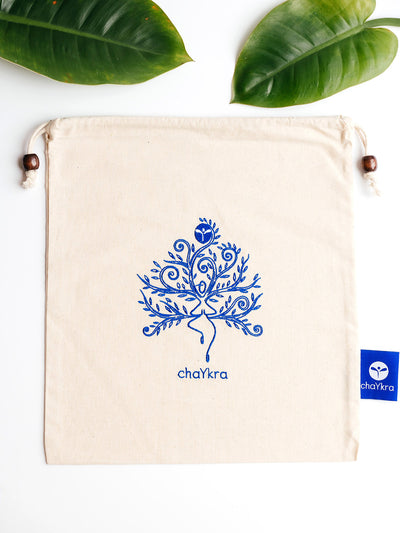Our Materials
Introduction to ‘Our Materials’ Section
According to the Danish Fashion Institute, the textile industry is one of the most polluting industries in the world. The World Bank estimates that almost 20% of global industrial water pollution comes from the treatment and dyeing of textiles.
One of the biggest culprits is conventional cotton which is responsible for 2.6% of global water use and 25% of the world’s chemical pesticides. These chemicals can have a serious impact on the health of the people who apply them. It is estimated that 77 million farmers suffer with poisoning from these pesticides each year. Most of these hazardous ‘cotton chemicals’ are applied in developing countries. Here, workers are less likely to be provided with equipment to handle pesticides safely, or to receive adequate training regarding their potential dangers.
Furthermore, ‘The Centre for Human Rights and Global Justice’ has estimated that Indian farmers committed one suicide every 30 minutes in 2009. It is speculated that these increasing numbers of suicides among Indian Farmers correlated with the legislation of GMO farming in 2002. The expense of the GM seeds and the costly contracts enforced by large GM companies have put increasing pressure on the farmers. As a result, many farmers are falling into an endless cycle of debt and despair, leading many to take their lives..
At chaYkra all of our cotton is totally organic, this is regulated by the Global Organic Textile Standard (GOTS) that certifies our factory.
Organic cotton seeds are non-genetically modified which allows farmers to source the seeds locally and free themselves from the control of large GM companies. This results in more money going to the farmers themselves. Also, non-genetically modified seeds do not require as much water. In fact, according to a study by Textile Exchange in 2014, it was found that organic cotton plants potentially save 91% more water than conventional cotton.
The second feature of organic cotton is that plants are not treated with synthetic but herbal pesticides. This replaces the innumerable consequences of pesticide use with positive outcomes, namely reduced global warming, increasing soil fertility and a water contamination free process.
- Reduced global warming by potentially 46%
Overall, growing organic cotton has a lower carbon footprint as there are less mechanical inputs involved in the process. For instance, the synthesis of natural and herbal pesticides, hand picking the cotton plants and reducing tractor operations and irrigation.
- Increases fertilisation by potentially 26%
Whilst synesthetic pesticides cause intentional harm to surrounding wildlife, organic cotton befits biodiversity and soil fertility through crop rotation.
- Reduces acidification of land and water by 70%
Field emissions are also reduced. More CO2 can be locked into the soil, as the fields act as carbon sinks, therefore soil is more nutrient rich and fertile.
Our factory is certified by the Global Organic Textile Standard (GOTS). Below is an overview of GOTS minimum social criteria which protects the rights of our farmers and factory workers:
- Employment is freely chosen
- Working conditions are safe and hygienic
- Child Labour MUST not be used
- Living wages are paid
- Working hours are not excessive
- No discrimination is practised
- Regular employment is provided
- Harsh or inhumane treatment is prohibited
chaYkra’s clothing factory supports Fair Trade manufacture. Fairtrade is a global movement whose goal it is to help producers in developing countries achieve better trading conditions and sustainability. Our factory has an SA8000 certification which is an auditable global standard for managing human rights in the workplace. This ensures ethical treatment of employees and the implementation of effective labour practises. As well as complying with the standard ‘no child labour’ and ‘minimum wage’ objectives, our factory also regulates maximum working hours and remunerates overtime work. Moreover, they also provide additional benefits including a company bus to take workers to and from the factory, subsidised canteen meals, medical insurance and supporting education for the workers’ children.
We procure our cotton from Chetna Organic who works with more than 15,000 small and marginal farmers, helping them to improve their livelihood options
and to increase the sustainability and profitability of their farming systems. Garments manufactured from Chetna cotton are completely traceable, right down to a specific farmer's field.
The cotton from Chetna Organic is fair trade certified. Producers receive a fairtrade premium on top of a fairtrade minimum price. This premium has been used by the Chetna farmers groups to support a number of community-based and social projects. A warehouse has been constructed where cotton can be stored until low season when prices are higher. Previously, farmers were risking their families’ health and safety by storing the cotton in their living spaces, where it could attract various fungi and insects, as well as posing a dangerous fire hazard. The premium has also been invested in social projects like starting up a nursery for the children of farm labourers, constructing a women’s restroom and improving local sanitation facilities. Projects intended to create viable income generating opportunities have also been supported such as the construction of lentil and rice mills, a bio-fertilizer unit and the purchase of a tractor and cattle.



